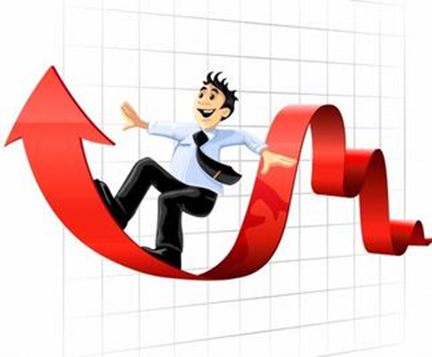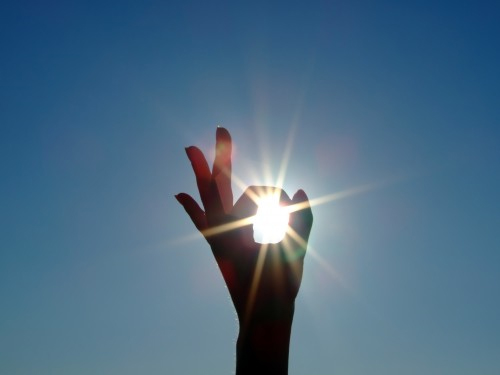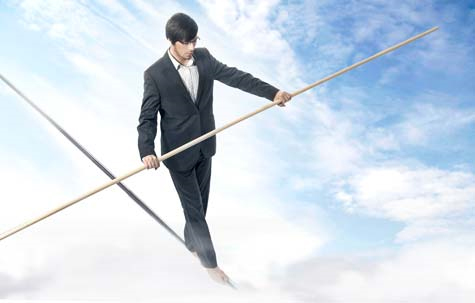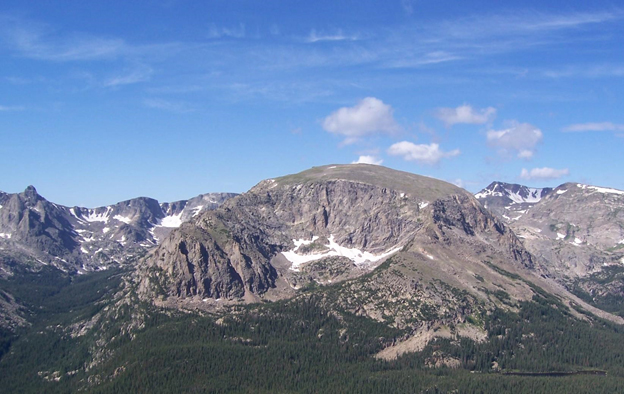What’s Up With That?

There are 4 months left in the year and I am beginning to see articles about The Best Backpacking Gear of 2017 and My Favorite Backpacking Gear of 2017 on the Internet. I don’t read these kinds of things any more because the “new” gear is generally no better or lighter than the 2016 lists of stuff, 2015 lists, 2010 lists, or even marginally lighter or better than gear that was sold 40 years ago in 1977.
There is one piece of equipment I recently saw that has some promise, but I didn’t read about it in one of those “best” or “favorite” gear articles.
A couple of my friends have one of these things. One friend brought it with him on a backpacking trip we did together and shared that it costs less than $50. I am not convinced it is a game changer as advertised. Time will tell I suppose. I’ll wait for some additional feedback from my friends before I even consider getting one for myself, but more than likely what I currently use is better. No use sharing any more information, because if I get one, I’ll have to do a lot of actual use in the field to discuss it further. However, the thing is selling like hotcakes in spite of no long term usage and some negative problems that the manufacturer can hopefully resolve.
UL Backpacking Gear as an Economic Indicator

As the Internet started to grow during the early to mid 2000’s, so did the chatter about lightweight, ultralight, (or whatever one wishes to call it) backpacking gear. People were (and still are) asking for advice on the newest and best shelter, stove, underwear, etc. Manufacturers, online magazines, websites, and blogs are ready and willing to guide you in making a purchase decision. For many the psychological need for a new shinning piece of gear beckons — even though the old one still works well and isn’t significantly better or lighter. We Americans just need new stuff. It is called conspicuous consumption.
Websites and blogs are more than happy to guide you to new purchases, because when you click a link to that new item, it is often an affiliate link. And if you purchase the item the website or blog owner receives a commission. I know, I have these kinds of links on this site.
Today there are more and more choices for new backpacking gear. As an example, twenty years ago there were a handful of good backpacking stoves. Now there are dozens of stove choices, to include cheap stoves of dubious quality that can be had online. It is simple economics: supply and demand. The offerings of new stove models is growing by leaps and bounds since the “Great Recession” because the demand is growing, and many backpackers now have several stoves in their personal inventory even though they only take one stove on a trip. I do see the need for a winter stove and a 3 season stove, or perhaps a couple of stoves that operate on different fuels contingent on where you are backpacking and what fuels are easily obtainable. I often see people purchasing a new 1 ounce stove, because it is lighter than their current 2 ounce stove — even though it may be less robust and unable to support the pot the old one could… so they buy a new pot too! Pick a gear item and there are dozens and dozens of choices because people are buying more and more backpacking stuff. Just as it is with lightweight backpacking gear, the public is buying more and more consumer goods — whether or not they need these things — people just want this stuff. Often increased consumption is an indicator of a strong economy, but not at this point in time… there might be a dark and vicious storm building on the financial horizon.
I recently read an article that reported 51% of Americans are living week to week (a.k.a. paycheck to paycheck), and the national household debt this year will surpass its historical high point of 2008, when our economy tanked. Not good. Over half of Americans are at risk of financial ruin if they get ill or lose their job.
Existential Boredom

Why are people buying so many things they don’t need and can’t afford? I don’t know the answer, but suspect it is because many are just plain bored. Somehow people feel better when they buy stuff. Jobs that can best be described as drudgery resulting in too much leisure time spent playing with electronic devices and wasting time on social media.
Financial Security, the Good Life, and some Fatherly Advice

This blog is primarily written for my kids, and they are doing well financially, making good financial decisions. So as a reminder for them, and perhaps advice to others who are at financial risk: The key to financial security is to pay yourself first from every paycheck. That is: put some money in the bank until you have at least 6 months of living expenses saved. Once this threshold it reached, then start putting money into a retirement plan. Another looming disaster, as documented in the article I reference earlier, is 61% of Americans do not have 6 months of living expenses saved. Can you see what poor shape so many Americans are in? If you are in this demographic, what should you do?
Other than a house, don’t buy anything on credit. If you can’t save any money, then create a budget and eliminate any unnecessary expenses… cable TV, smart phones, and even Internet service are unnecessary if you aren’t saving money every week! Plan for large purchases and save for them and pay cash. It’s better to make payments to yourself until you have enough money to buy that new car or large item. Avoid offers of “no interest” payments, because the interest is built into the purchase price.
In preparation for retirement, Joyce and I saved for a couple big ticket items — a new camper in 2013 and recently a hot tub. Both had offers for interest free payments. Because we paid cash, we were able to negotiate a 30% discount on each. This is how you save money and create security. Had we bought these things on credit, we would have wasted thousands of dollars in interest payments… instead we saved around $13,000 in cold, hard cash.
Credit cards are not necessarily a bad thing. I buy almost everything with my Discover Card, usually looking for items that qualify for 5% cash back whenever possible. Each month the balance is paid in full and each year we get over $1,000 cash back. The trick is not to buy anything on impulse, but take your time and shop around for the best quality you can afford for the best price available. Sometimes the best price is buying used. We buy a lot of used stuff.
Job Security in an Ever Changing World

There is no longer job security in our world. Technology can make almost every career obsolete. You must be continually improving your skills and knowledge, with an eye to future trends. Just assume your job will be eliminated someday with new technology and plan accordingly.
Back when I started working, I learned a trade. In those days, a trade meant job security for 30 or 40 years. But technology kept changing, and many in my trade became unemployable. Fortunately I changed with the times, learning new skills. In nearly 50 years of working I was never once laid off or fired — but my job often changed and I was prepared to leverage new technologies to my advantage.
Earlier this month Joyce was laid off from her job of almost 15 years, and most of her co-workers had thought her’s was among the most secure positions in the company — but several corporate buy outs, numerous reductions in the work force put every employee’s job at risk. We are fine. We were prepared for the possibility, since we have been paying ourselves first and not buying a bunch of stuff we really don’t need.
Are you prepared if you job is eliminated by technology? If not, what are you doing about it?
Little Things versus Big Things

If your backpacking kit works, then consider that new pieces of gear are the little things in life. Buying the newest and greatest won’t improve your life, nor will it make your trips better. Spending hours to research the “best” new stove is time lost. Time you could have spent standing on the rim of a mile deep canyon, looking at alpine lakes with a backdrop of snow, or enjoying the alpenglow of the sun coloring the mountains all around you — these are the big things worth spending your time doing. We can consume or we can spend much of our lives living in the big things.
If you still think you need the latest and greatest backpacking stove, smart phone, or whatever you lust for, perhaps looking at conspicuous consumption from an environmental point of view might give you pause.
Environmental Concerns

There is value in nature and wild places. Over 400 years ago, the famous philosopher Francis Bacon wrote,
Nature to be commanded, must be obeyed.
Are we living in a era of man-made climate change? I don’t know if it’s true. No one has proven it to be so. But I do know we are polluting our air and water, extracting natural resources at an alarming rate, and deforesting much of the planet. We are dumping trillions and trillions of tons of trash into landfills. Our wilderness areas are always at risk of human development. Our planet has finite natural resources. Nature will survive, but we may not. So if you think conspicuous consumption is a good thing, that it keeps the economy in motion and people employed, you might want to think to the future of the planet and generations yet to be born.
How much better will your life be if you replace that 2 ounce stove, that works perfectly, with a newer 1 ounce stove? Will the view from the canyon rim be better; will the alpine lakes glimmer more; will the alpenglow be more golden; will you be able to walk with less strain? No. But each new stove requires raw materials and energy to manufacture, fuel to transport it, etc. Perhaps you are reading this and aren’t a backpacker. This might be a more appropriate picture…
Every two years Apple introduces a new iPhone. Millions line up to purchase the newest and best iPhone, but each iteration of iPhone isn’t much better than the previous one. There truly is little gain. Millions of incrementally improved iPhones replace discarded units that function just fine. Often people buy a new phone when they drop their phone and crack the screen or when the battery begins to lose its capacity. Instead of spending under $100 to replace the screen or battery, people spend several hundred to buy a new phone. So we end up with millions of phones in our landfills and an astronomical amount of natural resources are used to feed our consumption. We are the ones damaging our environment, not Donald Trump’s withdrawal from the Paris accord. We cannot wait for “someone” to fix the problem — we have to power to do it ourselves.
So ignore all those Best of 2017 Gear Reviews and/or My Favorite Gear of 2017. Spend your time and money planning an addition backpacking trip instead. You will be happier. You bank account and the planet will thank you too.